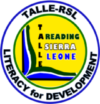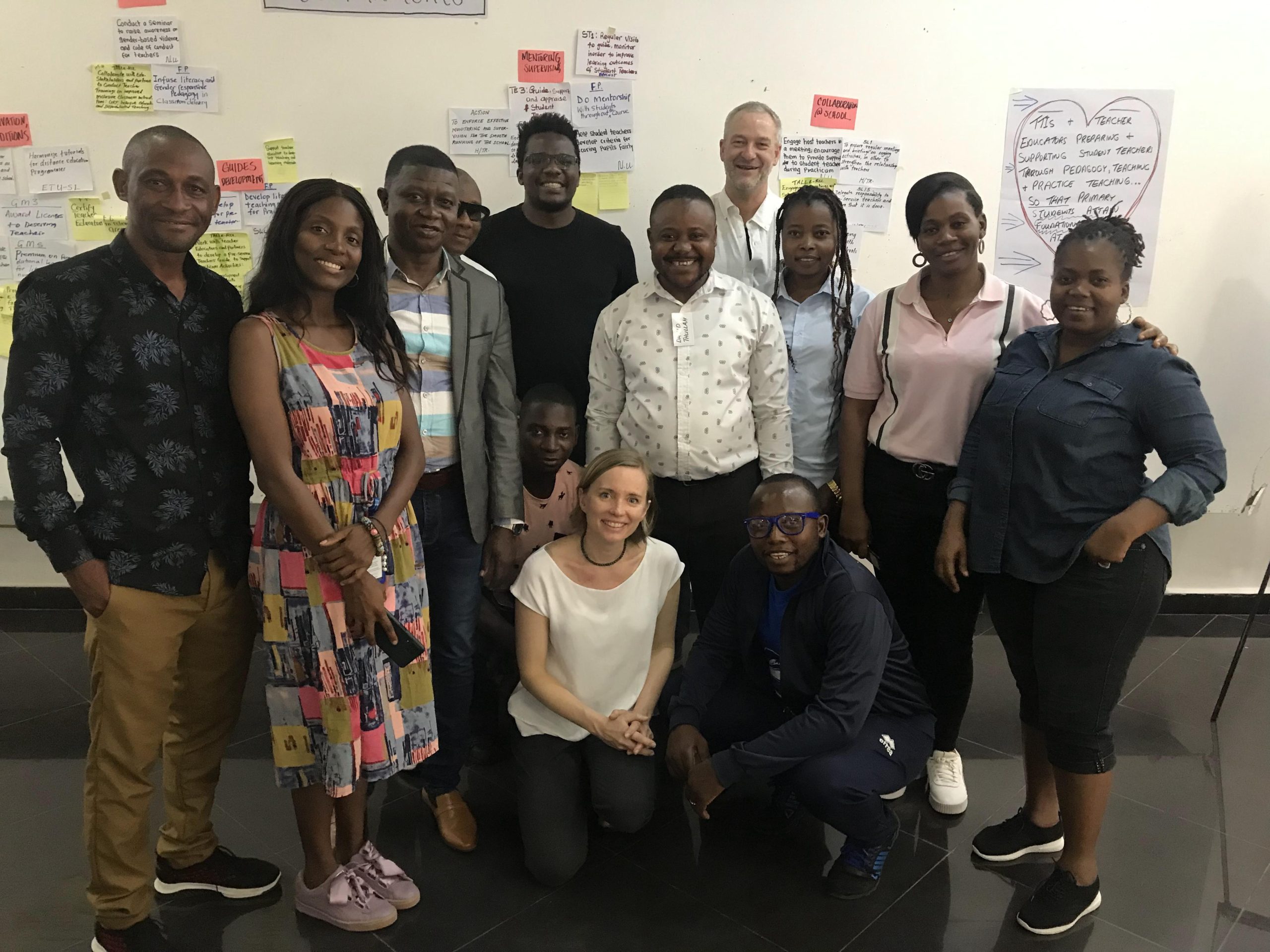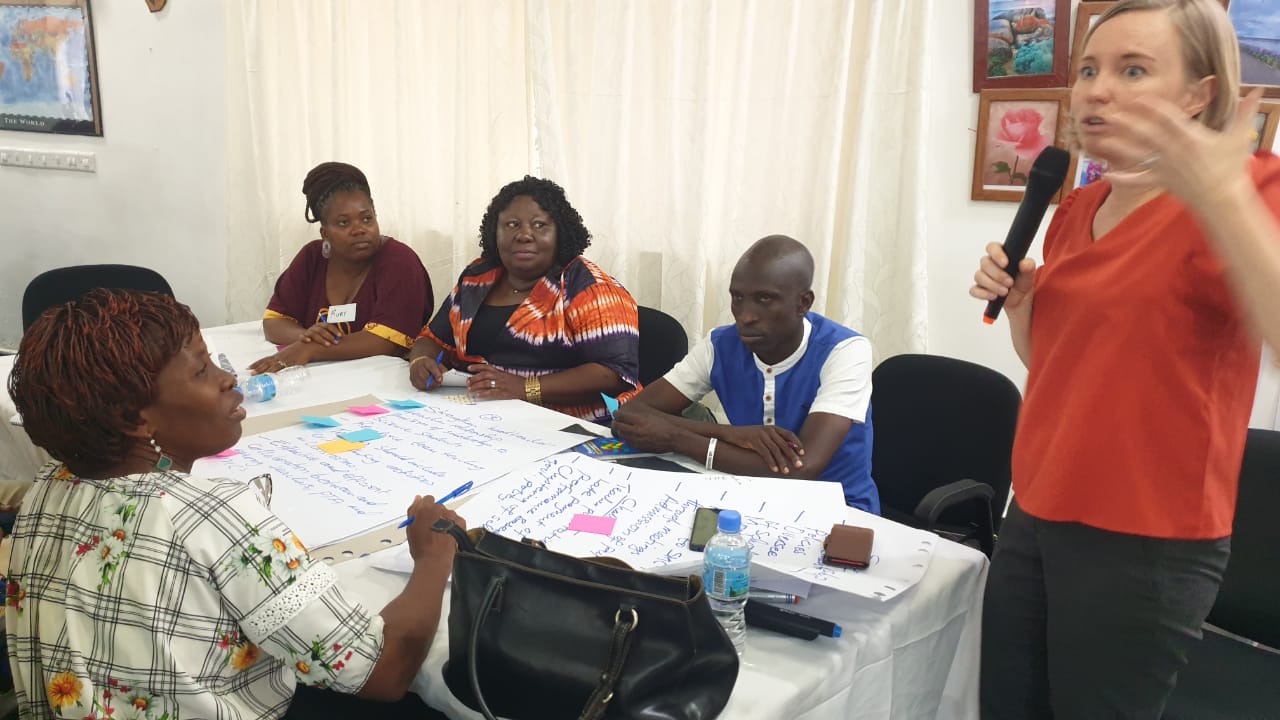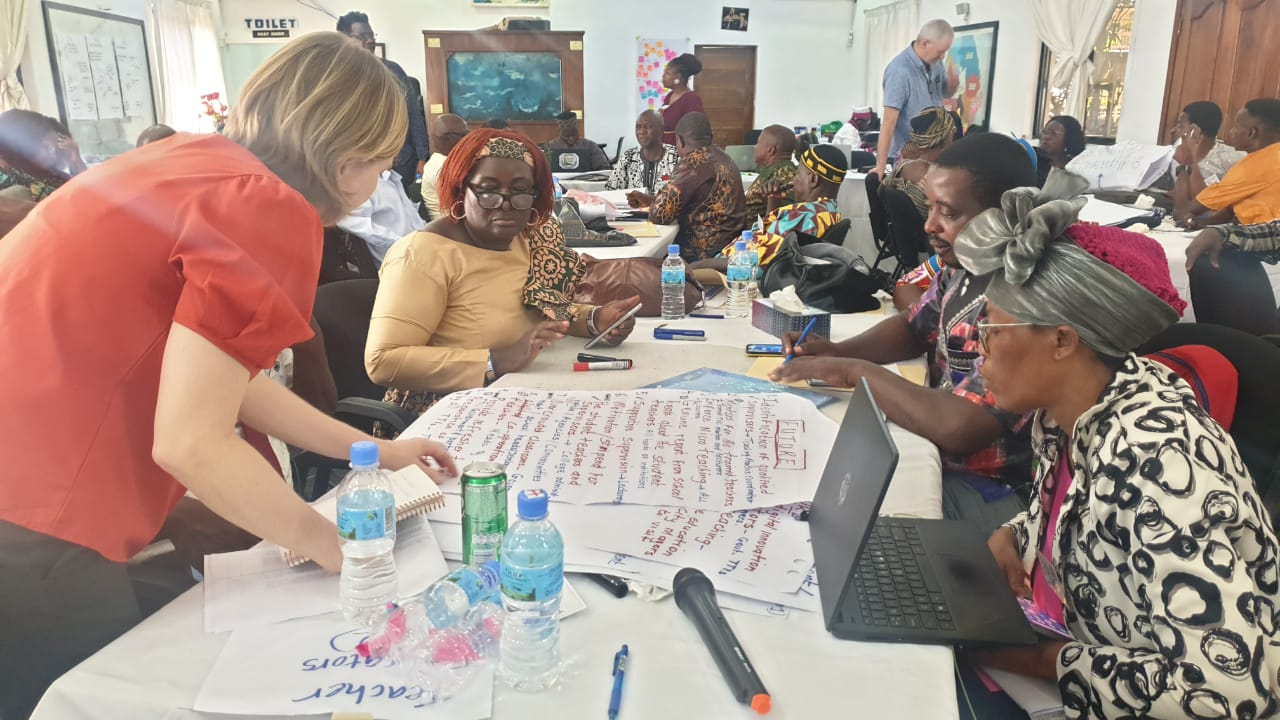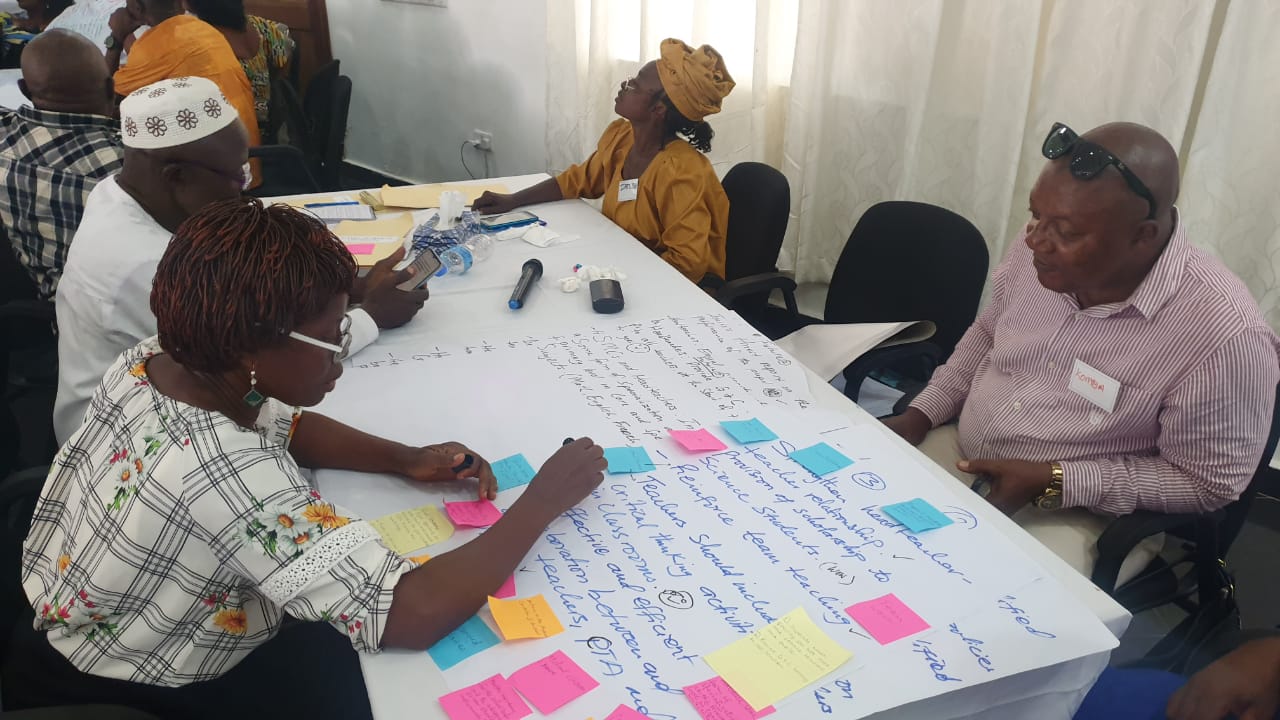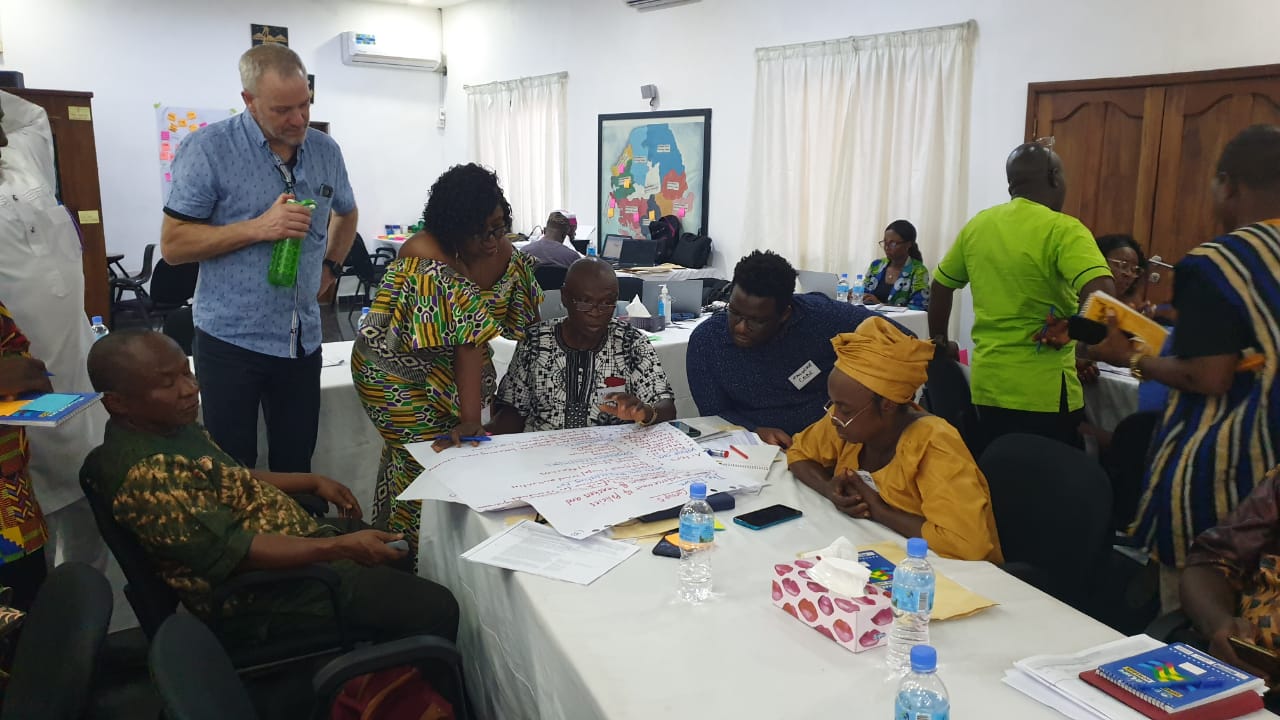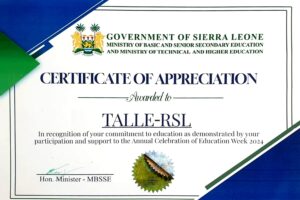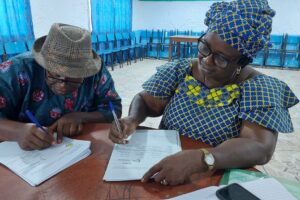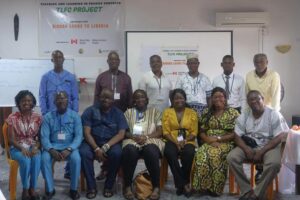Outcome Mapping Forum on TLFC project with Educator Partners and Stakeholder
Outcome mapping (OM) is a methodology for planning, monitoring and evaluating development initiatives to bring about sustainable social change.
At the planning stage, the outcome mapping process helps a project team or program be specific about the actors it intends to target, the changes it hopes to see and the strategies appropriate to achieve these. For ongoing monitoring, OM provides tools to design and gather information on the results of the change process, measured in terms of the changes in behaviour, actions or relationships that the team or program can influence.
As an evaluation approach, OM unpacks an initiative’s theory of change, provides a framework to collect data on immediate, fundamental changes that lead to more extended, more transformative change, and allows for the plausible assessment of the initiative’s contribution to results.
CODE Canada, CODE Sierra Leone and their implementing partner TALLE-RSL organized an outcome-mapping forum to develop clear pathways of change and eventual outcomes for the Teaching and Learning in Fragile Contexts project. The conference involved education partners and stakeholders to ensure their input in the project’s development.
The TLFC Project’s primary objective is to improve learning outcomes in primary schools in Sierra Leone and Liberia. To achieve this, the project is working with Teacher Training Colleges in both countries to enhance teaching and learning, focusing on early-grade reading and improving the effectiveness of student teachers’ practicum. TALLE-RSL will implement the TLFC project in Sierra Leone and work with four Teacher Training Institutions (TTI) or colleges, including EBKUST, Njala, Freetown Polytechnic, and Eastern Polytechnic. The project will impact 40 primary schools across various districts such as BO, Port Loko, Kenema, Western Rural, Moyamba, and Kambia.
